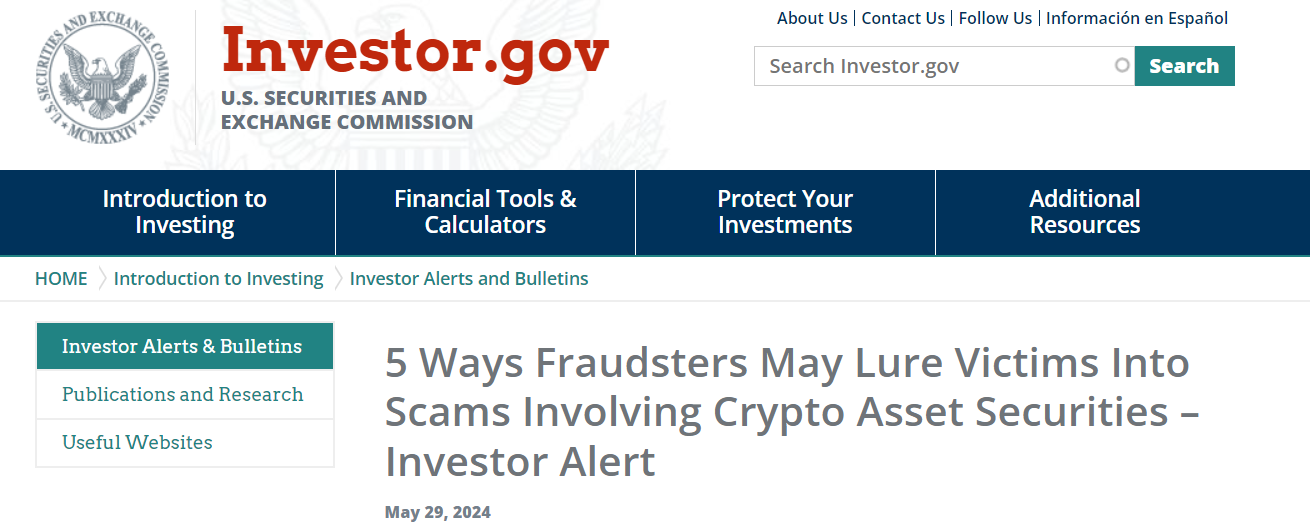It may sound a bit strange, but these tactics help us understand how victims fall into traps. SEC has a negative approach towards cryptocurrencies but needs to appear friendly to avoid voter anger due to the upcoming November elections. In their spare time, they have started producing crypto-focused content.
5 Tactics of Crypto Scammers
SEC’s Investor Education and Support Office works to raise awareness among citizens. Specifically, SEC’s warnings on this matter can benefit investors worldwide. We have written throughout the past year that Ponzi schemes and mining scams focusing on crypto will increase in 2024 and 2025.

Social Media, Social Engineering Attacks
In the first of the five tactics, you receive a message or SMS by mistake. They may pretend to be an old friend or claim they contacted you by mistake. The scammer quickly advances their communication with you. This sometimes evolves into a friendship or something more romantic. This is called “pig butchering scams.”
As the conversation progresses, they talk about investment opportunities, being knowledgeable in this field, or having a relative or friend working in a financial company. Even more elaborate stories can be created.
How will they take your money? They send you a fake exchange link or somehow obtain your wallet information. While you think you are sending money to a fake exchange, trading, and making money, those figures have no real value.
AI-Supported Stories
Scammers may use the increasing popularity of artificial intelligence (AI) as a hook to attract investors to investments related to crypto asset securities. Investing in crypto assets connected to AI may seem exciting, but sometimes it is just a trap.
Similarly, they can use AI technology to create “deepfakes” to deceive investors by cloning, altering, or mimicking voices, images, and videos. Visit the YouTube homepage or type Michael Saylor in the search bar. You might see him live on 10 different channels simultaneously, saying “everyone should buy cow coin.” Meanwhile, Saylor is probably dreaming at home.
Other 3 Important Warnings
You may encounter attacks mimicking trusted people through phone calls, voicemails, text messages, and social media. They have been doing this a lot lately. It’s not exclusive to crypto; you answer the phone, and your beloved cousin urgently asks for money. The more information you leak about yourself online, the more detailed these stories become. Those contacting you may pretend to be from a local regulator, court, or police department and ask for your assets, claiming they are illegal.
The fourth tactic is the familiar social media pump-and-dump story. An influencer claims to have bought a certain token, shares it, and you buy it, only to see the price drop to zero suddenly. The story may last days or weeks, but the token issuer is actually the influencer or a group of scammers organizing together.
In the fifth tactic, they may approach you to return the crypto you lost due to bankruptcy or fraud. They might send you a data entry application or wallet application. When you install it, your device and wallet information are transferred to the other party. Or they may ask for your wallet’s private key for verification purposes.

 Türkçe
Türkçe Español
Español









